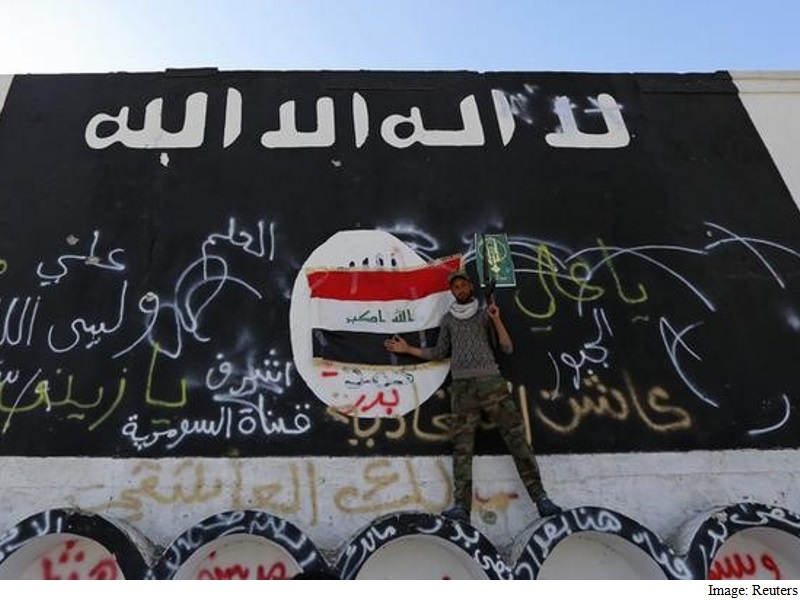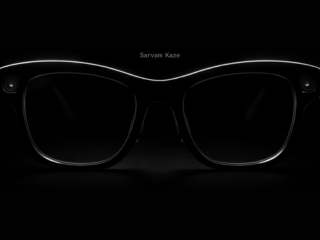- Home
- Mobiles
- Mobiles News
- 'Backdoor to Encryption Won't Stop Terrorists'
'Backdoor to Encryption Won't Stop Terrorists'

Michael Morell, former deputy director of the Central Intelligence Agency, told "60 Minutes" on Sunday that after the public discussion of encryption sparked by Edward Snowden and the privacy concerns he raised, "we're now going to have another debate about that. It's going to be defined by what happened in Paris."
Islamic State has claimed responsibility for the Paris attacks and for the explosion of the Russian airliner over Egypt last month. The group used Telegram, a Russian-designed, Berlin- based secure messenger app, to get out its message. The terrorists appear to prefer this methodto platforms such as Facebook and Twitter, where they are being censored and their accounts blocked.
There's no doubt that terrorist groups use these channels, and probably many other means, such as steganography, or the officially Snowden-approved messenger Signal and other apps with encryption capabilities that make it harder for governments to interfere with the communication. It's worth asking how they are using this software, however.
Propaganda and recruitment require relatively secure channels because IS needs to get its message out without interruption. And for potential Islamic State recruits getting in touch with the group is an important social experience that is made more exciting if some cloak-and-dagger stuff is involved. It's unlikely, however, that any experienced terrorist would assume that such communication channels - almost all developed in Western countries - are safe.
Apple Chief Executive Tim Cook says the encryption now used in his company mobile operating system, iOS, prevents everyone, including Apple itself and government agencies, from accessing user data. "We're not reading your e-mail, we're not reading your iMessages," Cook said on "Charlie Rose" last year. "If the government laid a subpoena on us to get your iMessages, we can't provide it. It's encrypted and we don't have the key."
Such statements aren't all that reassuring to the Islamic State, which last year specifically banned its fighters and officials from using Apple devices.
Smartphones in general are not particularly safe because they have built-in satellite navigation and can be used to locate and eliminate terrorists. Even with navigation turned off, the phones are untrustworthy because they use operating systems from Google and Apple, both flagged by Snowden as participants in the National Security Agency's electronic surveillance programs. US intelligence officials' complaints about the supposed impenetrability of publicly available encryption and the demands for access have been rejected by the administration, but to Islamic State and other terror groups, that's just a suspicious good cop, bad cop routine.
After all, even the encrypted messenger Signal was partly funded by the US government as part of its effort to provide encryption technology to people fighting oppressive regimes. There is no way for the terrorists to know whether a backdoor was built in.
On the morning after the Paris attacks, former White House Press Secretary Dana Perino blamed Snowden for tipping off terrorists about US electronic surveillance. Yet long before Snowden leaked NSA documents, terror groups knew encryption wasn't particularly useful. Al-Qaida was known to use encryption and steganography; according to one story, the Muslim fundamentalists used porn sites to send secret messages. But the Sept. 11 hijackers exchanged unencoded messages on Hotmail, merely substituting the phrase "The faculty of Commerce" for "World Trade Center."
From a terrorist's point of view, truly secure communication is either so routine-looking as to avoid interest - or it is offline. If a group uses a commonly available messaging app, it's likely to get caught, as an alleged Chechen jihadist group did in Belgium last summer.
Whatever communication method the Paris assailants turn out to have used, providing backdoors into commercial encryption probably won't prevent the next attack. Almost all the attackers were known to the authorities, and if they had been watched, their use of encryption programs would have itself invited closer scrutiny. There is, however, no way for intelligence services to watch every suspicious individual all the time, and terrorists will always be able to use that to their advantage.
© 2015 Bloomberg L.P.
Get your daily dose of tech news, reviews, and insights, in under 80 characters on Gadgets 360 Turbo. Connect with fellow tech lovers on our Forum. Follow us on X, Facebook, WhatsApp, Threads and Google News for instant updates. Catch all the action on our YouTube channel.
Related Stories
- Samsung Galaxy Unpacked 2026
- iPhone 17 Pro Max
- ChatGPT
- iOS 26
- Laptop Under 50000
- Smartwatch Under 10000
- Apple Vision Pro
- Oneplus 12
- OnePlus Nord CE 3 Lite 5G
- iPhone 13
- Xiaomi 14 Pro
- Oppo Find N3
- Tecno Spark Go (2023)
- Realme V30
- Best Phones Under 25000
- Samsung Galaxy S24 Series
- Cryptocurrency
- iQoo 12
- Samsung Galaxy S24 Ultra
- Giottus
- Samsung Galaxy Z Flip 5
- Apple 'Scary Fast'
- Housefull 5
- GoPro Hero 12 Black Review
- Invincible Season 2
- JioGlass
- HD Ready TV
- Latest Mobile Phones
- Compare Phones
- Lava Bold N2
- Vivo V60 Lite 4G
- Tecno Pova Curve 2 5G
- Lava Yuva Star 3
- Honor X6d
- OPPO K14x 5G
- Samsung Galaxy F70e 5G
- iQOO 15 Ultra
- Asus Vivobook 16 (M1605NAQ)
- Asus Vivobook 15 (2026)
- Brave Ark 2-in-1
- Black Shark Gaming Tablet
- boAt Chrome Iris
- HMD Watch P1
- Haier H5E Series
- Acerpure Nitro Z Series 100-inch QLED TV
- Asus ROG Ally
- Nintendo Switch Lite
- Haier 1.6 Ton 5 Star Inverter Split AC (HSU19G-MZAID5BN-INV)
- Haier 1.6 Ton 5 Star Inverter Split AC (HSU19G-MZAIM5BN-INV)







![[Partner Content] OPPO Reno15 Series: AI Portrait Camera, Popout and First Compact Reno](https://www.gadgets360.com/static/mobile/images/spacer.png)









